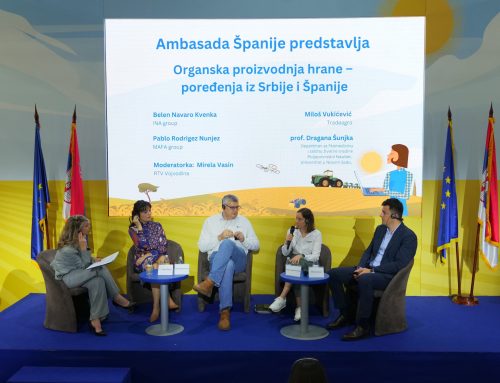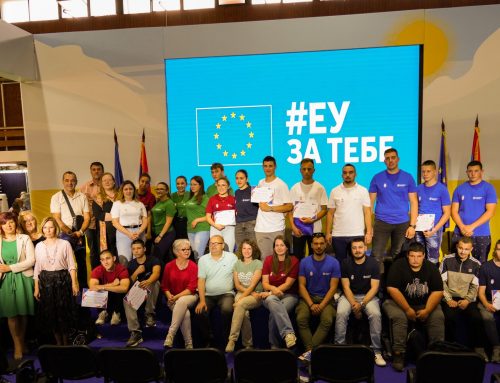The 1st Inter-Party Dialogue in the National Assembly of Serbia took place on 9 and 10 October and focussed on the important topic of improving the conditions for holding parliamentary elections. As agreed with the Speaker and a large majority of the political groups in the National Assembly, the dialogue was facilitated by the European Parliament.
The Facilitator’s opening remarks reminded the participants of the European Commission’s Report and ODHIR Recommendations which clearly stated that there is a need for a comprehensive and inclusive review of the legal framework on elections, in order to regulate all essential aspects and address gaps and loopholes, inter alia the need for:
- Independent regulatory bodies to be empowered to exercise their monitoring and oversight role proactively and effectively;
- guaranteeing a level playing field among contestants, the separation between party and state activities needs to be strictly adhered to;
- urgently tackling the unbalanced media coverage;
- preparing and implementing the reforms in an inclusive and transparent manner.
For the agenda of the first Inter-Party Dialogue, the following four substantial issues were addressed:
- stock-taking on recent proposals to improve the conditions for holding parliamentary elections
- media and the role of the REM and RTS
- campaign finance
- voter education (training) and voter list (transparency)
The dialogue received expert input from the government’s “Working Group for Cooperation with the OSCE/ODHIR in Coordination and Monitoring the Implementation of Recommendations for the improvement of the Electoral Process” and civil society experts at Open Society Foundation (OSF), the Centre for Research Transparency and Accountability (CRTA), Transparency International-Serbia, and the Center for Free Elections and Democracy (CeSID).
The Working Group informed the participants in the dialogue about the initial measures being taken to improve the conditions for holding the elections, such as:
- the prohibition of state officials to use public resources for political campaign purposes and for their adequate sanctions for any abuses;
- measures giving responsibility to the Ministry of Public Administration and Local Self-Government (MPALSG) to oversee the provisions to implement the Single Electoral Roll;
- the training of officials involved in the maintaining and updating of the Single Electoral Roll and their capacity for implementing the new internet site to inform citizens about the electoral roll;
- recommendations that the REC conducts all necessary training in the preparation and conduct of elections including members of polling boards; public inspection of the electoral board activities and their records;
- the regulation of international and domestic election observers;
- enabling the access to extracts of the electoral roll after the vote, at the request of citizens.
It will be essential that these initiatives are implemented in full alignment with OSCE/ODHIR recommendations.
The participants were also informed about new proposals including inter alia:
- modifications to the three laws on Anti-Corruption Agency, the Financing Political Activity and on Public Companies. These should be amended in line with European and international best practices including ODHIR recommendations and subject to full parliamentary scrutiny;
- clarify the rules of political advertising within the existing legislation to ensure equitable access, treatment and transparency;
- the plan for the National Assembly to organise an open meeting/public hearing with all stakeholders on the role and conduct of the REM including ways to clarify its competences in the areas of supervision, monitoring, enforcement and sanctioning during the electoral campaign. This should result in concrete actions to improve its work before the upcoming elections;
- establishment of a Supervisory Board of the National Assembly for the control of electronic and print media;
- the appointment of the vacant REM posts and clarification of the procedures for the appointment and dismissal of the REM members; the outcomes of a wide and inclusive public hearing should be taken into account also in this context;
- plan to ensure comprehensive training for all officials involved in the conduct of the elections as well as a comprehensive public campaign to strengthen voter education;
- Improving accuracy of the Voter List including by strengthening and the supervision of all laws, procedures and by-laws for the regulation of the single electoral roll.
All planned activities should be transformed into concrete results. Whilst welcoming the new initiatives, these are not addressing all shortfalls, therefore further steps should be taken before the next Inter-Party Dialogue in mid-November to further improve the conditions for holding parliamentary elections. This in particular includes creating a level playing field for all political parties participating in the elections to have equal access to the media particularly the public broadcasters (RTS, RTV). The participants emphasised the importance that all such proposals are subject to transparent procedures, public consultations, including full parliamentary scrutiny, before their implementation. Participants also underlined the importance of ensuring such proposals are subject to feedback from the OSCE/ODHIR to ensure they are fully aligned with its recommendations.
In this respect the participants are willing to continue their participation in the format of the Inter-Party Dialogue in order to discuss progress, and outstanding shortfalls, in improving the conditions for holding elections. The participants encouraged the institutions to update them on progress in all these areas before the next dialogue.
In line with the proposal agreed between Mr McAllister, Chair of the Foreign Affairs Committee of the European Parliament and the Speaker of the National Assembly, this was the first phase of three dialogues before the end of the year on the topic of improving the conditions for parliamentary elections. A second phase of the dialogue will focus on the longer-term objective of improving Inter-Party Dialogue inside the National Assembly, including issues such as reform of the Rules of Procedure and further review of the electoral framework. The next round of the dialogue will take place in mid-November in the National Assembly.



